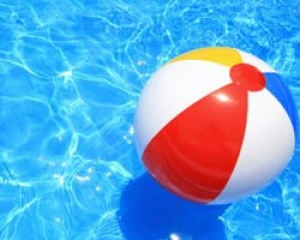 William M. Sparks 1945 - 2023
William M. Sparks 1945 - 2023
My father, William (Bill) Sparks, passed away sadly but comfortably Sunday morning, surrounded by his family. He was a kind and loving man with a heart of gold. There are so many who loved him and will feel this loss – in the business world and far beyond. He would say thank you to all of his small-business customer for their support, and he would wish everyone peace and happiness. I have run the William M. Sparks Insurance Agency for many years now, and I will continue to run it just as my father did and as he would want me to do. On behalf of my family, I thank you all for your kind words, well wishes and support at this time. --- Danielle Sparks
Regardless of our swimming abilities, many of us beat the heat in our backyard swimming pool as summer temperatures soar. It seems that taking advantage of a residential swimming pool is more popular than ever before. In fact, well over 8 million U. S. households owni a pool, according to the Association of Pool and Spa Professionals.
But all swimming pools – from the simplest inflatable wading pool to the most elaborate luxury in-ground variety – can present a danger, especially to children.
Swimming Pool Safety Tips
The following safety rules will prevent accidents and decrease your potential liability exposure:
- Empty wading pools completely after each use, and always store them upside-down to avoid collection of rain water.
- Install a fence at least 4 feet high around the entire pool area with a gate that latches and locks. Never leave furniture or other items close enough to the fence to allow children to climb over. Pool alarms and safety covers add extra protection.
- The powerful suction of a pool drain can trap a child under water. Cover your drain with a safety guard, tie up long hair before swimming, and teach children to stay away from drains and filters. In particular, teach them never to sit on a pool drain.
- Post emergency numbers and CPR instructions in the pool area. Store a first aid kit, a cordless water-resistant phone, reaching poles and ring buoys near the pool area to be used in case of emergency; and do not allow children to play with these items.
- Consider having older teens and adults take a course in basic first aid and CPR, and enroll your family’s non-swimmers in swimming lessons with a certified instructor. Anyone who is not a good swimmer should wear a U.S. Coast Guard approved life vest while in your pool.
- Adults should not swim alone, and children should never swim without an adult present and watching them constantly.
- Keep the pool area clear of glass items, electrical devices (radios, CD players, etc.), and obstacles that could cause a fall or other injury.
Insurance and Liability Issues
If you are planning to install a pool at your residence, it is important to consider the insurance implications as well as the safety issues. The Insurance Institute recommends the following:
- Installing a pool will also increase your insurance liability risk. So contact your insurance agent to be sure your homeowners policy provides enough additional liability coverage. If your pool will be costly, this may mean you will have to increase your coverage to protect your pool, should a storm or other disaster destroy or damage it.
- Contact your town or municipality since the definition of a pool which drives local building codes and safety standards will vary from town to town. You will want to have this information before you purchase the pool.
Tag Cloud

|
|
 |




